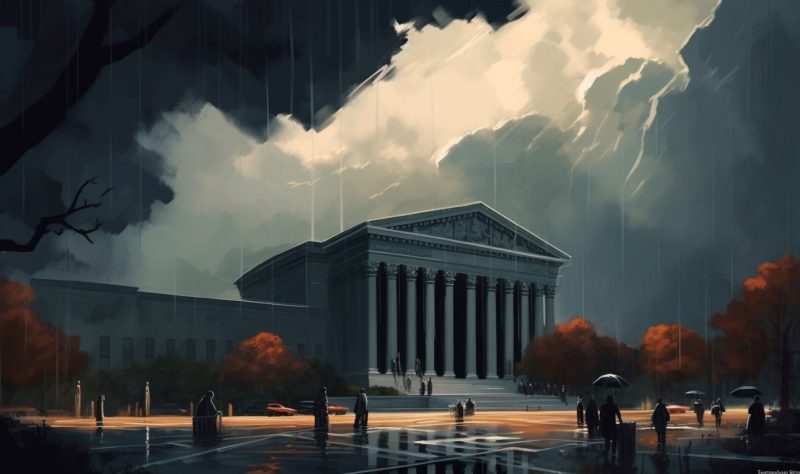
In a historic judgement, the United States Supreme Court has dismissed the independent state legislature theory in a key election law dispute.
This theory, which suggests that state legislatures hold absolute and exclusive power to dictate the means of choosing electors for the presidency, regardless of state constitutional regulations or judicial oversight, was knocked down in this ruling.
The verdict from the Supreme Court delivers a powerful repudiation to this theory, acknowledging the crucial role of both state constitutions and the judiciary in crafting election rules and methodologies. The judgement also highlights the significance of a fair and impartial electoral process, in line with the core tenets of democratic governance.
The independent state legislature theory has been a topic of intense debate, with critics suggesting it affords state legislatures an unchecked authority in dictating electoral methodologies, thereby potentially compromising the democratic process. Those opposed to the theory have voiced fears about possibilities of gerrymandering, voter disenfranchisement, and an erosion of popular sovereignty.
The verdict is anticipated to influence a wide spectrum of future election law litigations and the overall conduct of US elections. By dismissing the independent state legislature theory, the Supreme Court has communicated its dedication to preserving democratic governance tenets, ensuring that elections are executed in a just and balanced manner.
This case emphasises the ongoing discussions about the powers of state legislatures in deciding electoral methodologies, and the equilibrium of power between state and federal authorities in the electoral context. This Supreme Court judgement will undoubtedly impact this discussion in the foreseeable future.
It’s important to clarify that despite the court’s significant decision, it doesn’t exclude the potential for future disputes or shifts in legal interpretations. As with many constitutional law domains, the interpretation and implementation of these principles may transform over time, shaped by changes in legal, political, and social spheres.
In the immediate wake of the judgement, responses have been mixed. Proponents of electoral fairness have praised the decision, while those favouring a more direct role for state legislatures in dictating electoral methodologies have expressed their dismay. As the consequences of this judgement continue to unfold, the discourse around American election law is anticipated to persist with renewed intensity.
